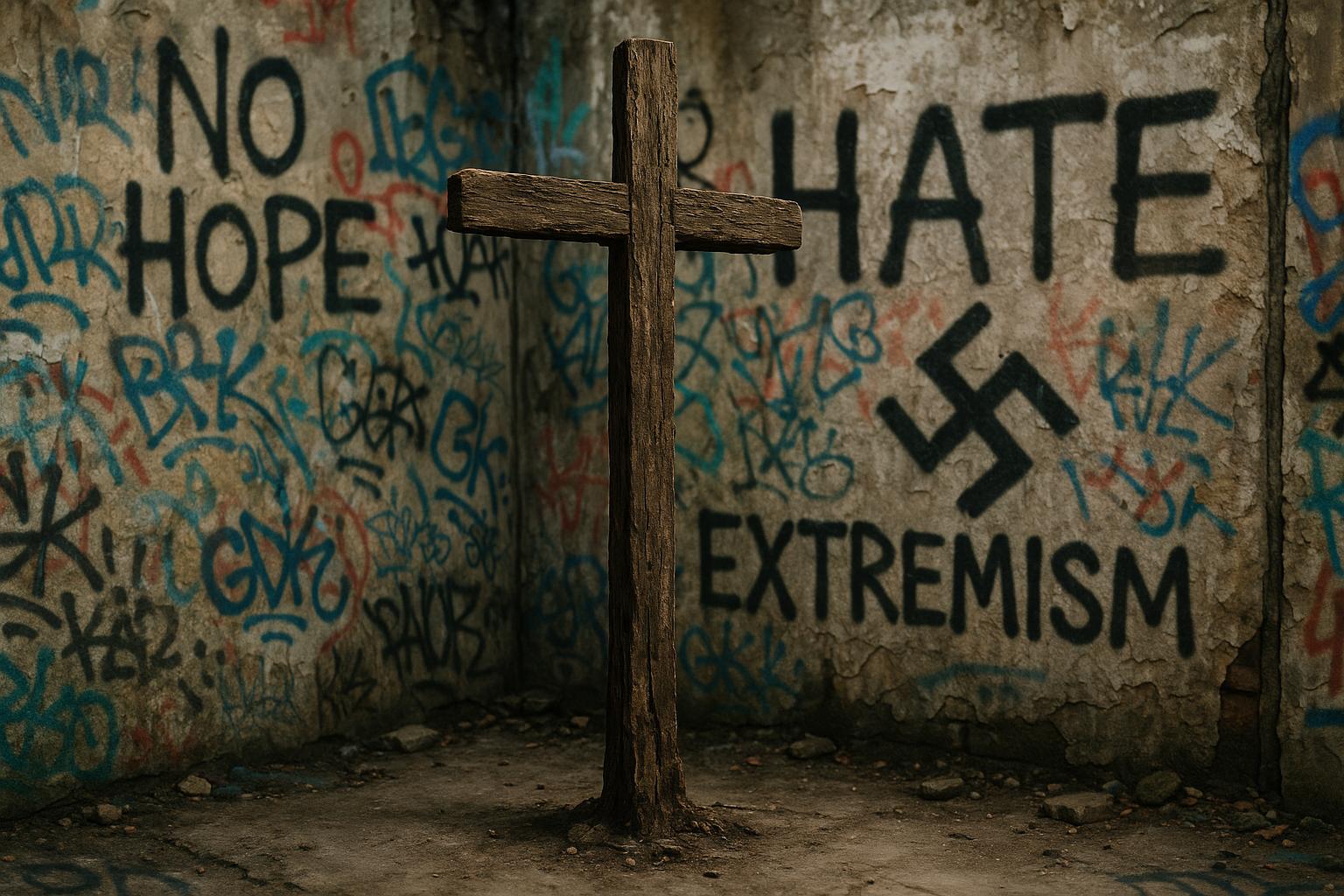The misappropriation of Christian symbols and teachings by far-right groups remains a troubling issue that deeply concerns many followers of the faith. Anne Dobbing, a Catholic Christian from Dumfries and Galloway, articulates a strong rejection of this distortion of Christianity, emphasising that the core of her faith revolves around justice, peace, reconciliation, and compassion. She finds it nauseating that extremist right-wing groups exploit the religion to promote racism, division, hate, and fear. Reflecting on the life of Jesus Christ, Dobbing highlights his radical outreach to marginalized people and his challenge to established power, ultimately leading to his death as an executed criminal—a stark contrast to the divisive and exclusionary messages propagated by far-right activists. She urges Christian leaders to challenge the weaponisation of the cross as a symbol of fear and hatred and calls on bishops to be more vocally opposed to such misuse.
This sentiment is echoed by Rev Dr Jonathan Hustler, Secretary of the Methodist Conference, who decries the recent use of Christian symbols by far-right activists in London as an affront to God's message of love. Hustler stresses that those who demonise vulnerable people and incite violence show little understanding of the Christ they purport to follow. He argues that rather than merely issuing statements, the best response lies in practical acts of love and solidarity—churches welcoming asylum seekers, committing to anti-racism, and supporting struggling communities through initiatives like food banks and warm spaces. In these actions, the authentic meaning of the cross is made manifest, transcending political noise to focus on uplifting those who are weak and vulnerable.
The conversation extends beyond Christian communities, as Andrew Copson, Chief Executive of Humanists UK, observes that contesting the beliefs of Christian nationalists might be less persuasive for non-Christian majority populations if framed solely within theological debate. Instead, he advocates for uniting all people of good will—regardless of religious or non-religious backgrounds—around shared values such as freedom, justice, and human rights. This approach, Copson suggests, avoids needless division and fosters a broader coalition against hate and discrimination.
The misuse of Christian symbols by political groups has drawn concern at the highest levels of the Church. During a visit to Slovakia, Pope Francis explicitly criticised the reduction of the cross into a political emblem, cautioning against its use as a partisan or status symbol. He reiterated that the cross signifies a new way of living based on recognising others as brothers and sisters, not enemies. This statement followed the Pope’s visit to Hungary, where political parties prominently feature crosses on their flags, underscoring his disapproval of religious iconography being co-opted for nationalist or far-right agendas.
The far-right’s weaponisation of symbols is not unique to Christianity or the UK; it is part of a broader phenomenon observed across the globe. Studies of the US Capitol riot reveal the deployment of various far-right hate symbols, such as the 'Kekistan' flag and QAnon insignia, which convey coded messages and ideologies to like-minded extremists while intimidating others. The evolution of such symbols, including the historic ‘Appeal to Heaven’ flag and Celtic Cross, further highlights how far-right groups appropriate and repurpose religious and historical iconography to articulate their worldview. For example, the Crusader cross and the phrase ‘Deus Vult’ (‘God wills it’), popularised by figures like Pete Hegseth, have been embraced by some far-right factions to signify a militant Christian identity, often detached from their original historical and theological contexts.
This widespread pattern of symbolic appropriation intensifies the challenge that genuine Christian communities face. They must not only reject the false prophets who exploit their faith to justify division and hate but also actively embody the principles of love, reconciliation, and justice that stand in stark opposition to far-right agendas. The issue extends to all people who value human dignity and rights, highlighting an urgent need for collective action founded on shared values rather than sectarian rhetoric.
📌 Reference Map:
- Paragraph 1 – [1], [2]
- Paragraph 2 – [1]
- Paragraph 3 – [1]
- Paragraph 4 – [3]
- Paragraph 5 – [4], [5], [6], [7]
Source: Noah Wire Services
